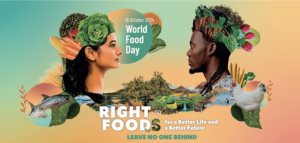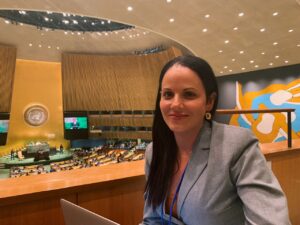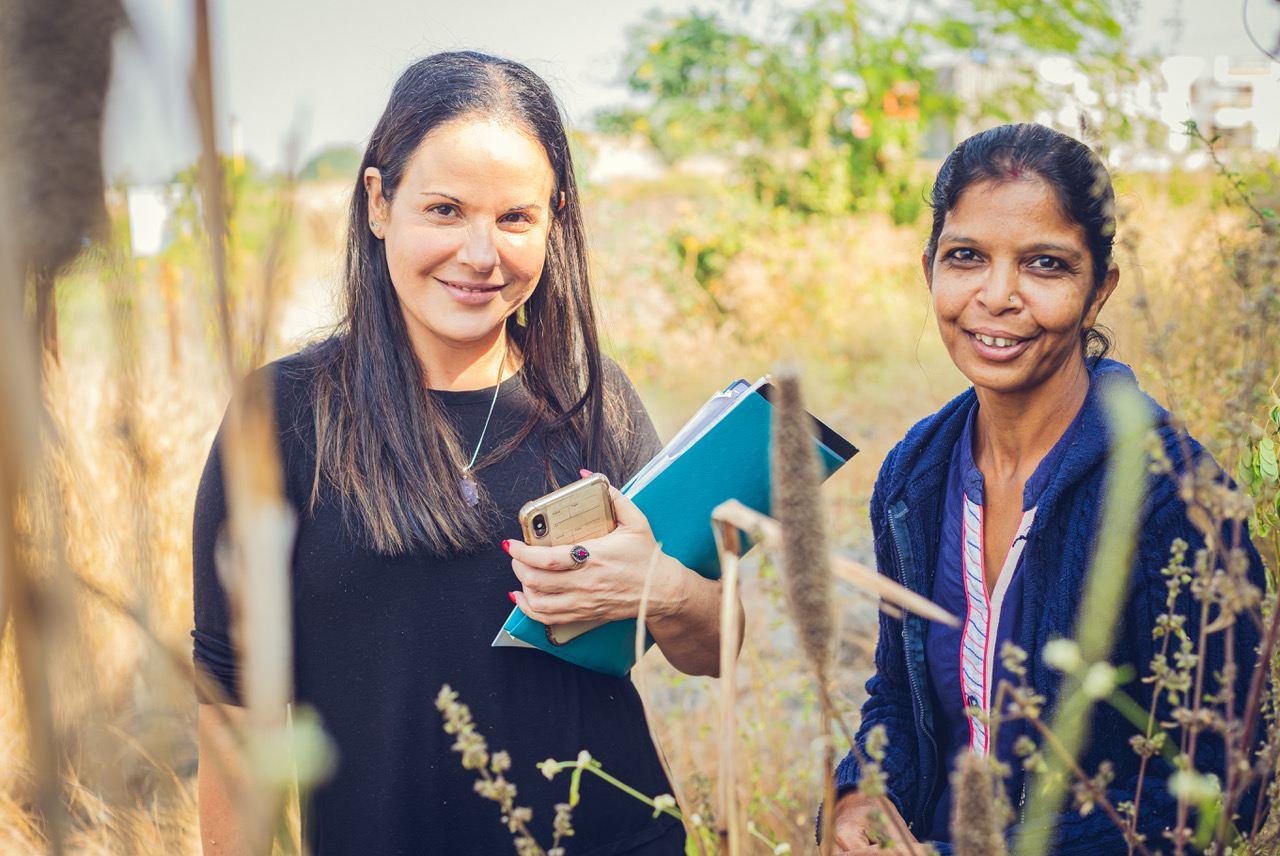On this World Food Day, Daphne Ewing-Chow— a Bajan food and environmental journalist and Senior Contributor at Forbes— is reflecting on sitting at what she calls “food’s biggest table”.
It’s where the most urgent conversations about the future of our planet unfold: food security, climate change, and the survival of the most vulnerable.
2024 has been a whirlwind year for Ewing-Chow, and she’s nowhere near slowing down. From a high-profile interview with Bill Gates as well as political leaders such as Sierra Leone’s Minister of Agriculture Dr Henry Musa Kpaka, and former Ethiopian Prime Minister Hailemariam Desalegn, she’s taken on some of the world’s most influential voices. And yet, she’s humble when she talks about her success.

“Interviewing Bill Gates was surreal,” she says, grinning. “There I was, looking at him on my screen in his signature sweater and button-down shirt, talking about global food security and how we’re far from meeting most of the Sustainable Development Goals. At first, I was nervous, but then I thought, ‘This is what I do. This is my life’s work’.”
Her life’s work? Taking on the world’s biggest challenges— hunger, malnutrition, and climate catastrophe—often through the lens of the Caribbean, where she was born and raised, and where these problems are starkly felt.
“Hunger and malnutrition don’t have a race, a class, or a nationality,” she says.
Daphne Ewing-Chow has spent over a decade championing global food security with a focus on how climate change exacerbates these issues, especially for small island developing states like her native Barbados. Whether she’s covering hurricanes in the Caribbean or food crises in Africa and Asia, she’s determined to make sure these stories are heard.
This year, as a correspondent for The New York Times, she was on the front lines reporting live on Hurricane Beryl. It was a pivotal moment, blending her deep understanding of climate change and her passion for storytelling.
But that was just one chapter. At the end of this month, she’ll take the stage at the prestigious World Food Prize ceremony— what she calls “food’s biggest table”— to interview this year’s laureates Cary Fowler and Geoff Hawtin, whose work establishing the Svalbard Global Seed Vault in the remote Arctic is protecting the planet’s biodiversity. Sometimes called the ‘Doomsday Vault’, it holds more than 1.25 million seed samples, serving as the last line of defence for global food security.
“I’ve been chosen to interview the laureates in a global broadcast,” Ewing-Chow says. “These are the people shaping the future of food. This is a huge deal— not just for me, but for the Caribbean. As far as I know, I’ll be the second person from the region to ever take a seat on this stage after Shakuntala Thilsted from Trinidad who won the World Food Prize in 2021.”

Daphne recently covered the UN General Assembly and Climate Week and is gearing up for the UN Climate Change Conference (COP29) in Azerbaijan next month. (GP)
Not bad for someone who grew up in St Michael with big dreams.
Her path wasn’t always clear. Ewing-Chow attended St Winifred’s School and Harrison College before heading to the University of Michigan to study African studies and sociology. She later earned a master’s in International Economic Policy from Columbia University, but journalism wasn’t initially in the cards.
“At Harrison College, the push was for science and maths,” she explains. “But international development fascinated me, and eventually, I found my way to journalism through that.”
Now, she’s one of the loudest voices advocating for food and climate issues affecting small island nations and marginalised communities. The stakes are personal, and she’s determined to make sure the world listens. “We in the Caribbean are often marginalised in global discussions,” she says. “But our problems are critical, and our successes matter too.”
Her work is a bridge between the Caribbean and the world, ensuring that the challenges and triumphs of small island nations are part of the global dialogue. Recently back from the UN General Assembly and Climate Week, Ewing-Chow is gearing up for the UN Climate Change Conference (COP29) in Azerbaijan next month, where she’ll continue to fight for the voices of small islands and climate-vulnerable nations to be heard on the world stage.
“Wherever I go, my Bajan flag flies high,” she says with pride.
sandydeane@barbadostoday.bb
The post Bajan journalist celebrates World Food Day at food’s biggest table appeared first on Barbados Today.
Imewezeshwa na Programu-jalizi ya Echo RSS na CodeRevolution.


Maoni ya Hivi Karibuni